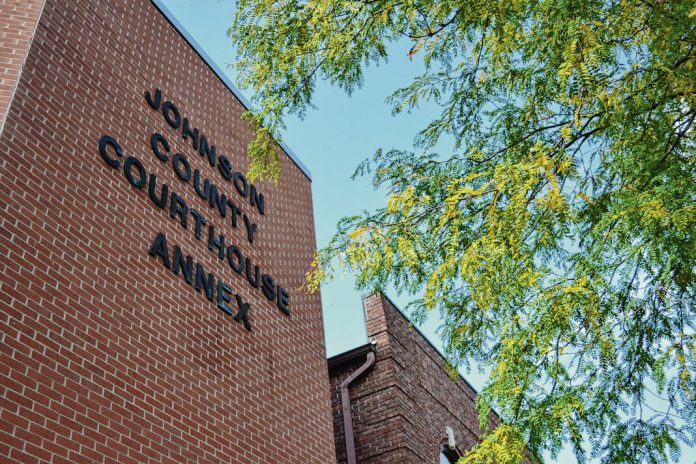Johnson County organizations can have a new tool to fight against the opioid epidemic.
The Johnson County Opioid Remediation Advisory Board is now accepting applications for its first grant cycle that will aid proposals focused on opioid prevention, treatment and recovery.
The county will have a total of approximately $5.7 million to distribute through 2038. About $250,000 will be available to distribute annually, according to estimates provided to the county.
All municipalities aside from Greenwood have put their shares of the funds together to be distributed to organizations fighting the opioid epidemic through this program. The money will be distributed by a new board comprised of appointees from all municipalities in Johnson County aside from Greenwood. City officials made plans to use the funds in other ways, including starting a mobile integrated health unit.
Commissioner Kevin Walls and Johnson County Council member Melinda Griesemer represent the county on the board. Other members are as follows: John Myers, Edinburgh town manager; James Rumell II, of Bargersville town council; Todd Shuck and Jennifer Price, of Franklin city council; Debra Hendrickson, of Whiteland town council, Jessica Jones, of Trafalgar town council, Dennis Combs, of New Whiteland town council; and Greg Nelson of Prince’s Lakes town council.
By putting people from different communities together in the same room, the hope is to see how the epidemic impacts each community and how the county could best help, Walls said.
“We have taken a position we want to include the whole county because we don’t know their communities as they know their communities,” he said.
The advisory board is now accepting applications until the close of business on Oct. 31. Tiffany Costley, assistant county attorney, said the county will most likely take 30 days to review the applications. The advisory board will then hold a public meeting to deliberate and make a recommendation to the commissioners, who will ultimately have the final say.
Costley said the county hopes to announce the first distribution of money by the end of the year. The award amount per individual applicant should not exceed $50,000 per grant cycle or $100,000 per grant cycle for applications submitted jointly by two or more entities. Grants are expected to be given out on a yearly basis with this year marking the first cycle.
Respondents should be embedded in and working with their communities. Projects that can provide evidence of revenue generation and direct community impact, have an established record of success of three years or longer and are submitted jointly by two or more entities “that can provide evidence of greater community impact” will be considered first.
“So, what we’re doing here is the biggest bang for the buck. I mean, we’re putting all 100% of this money back into the care it needs to be,” Walls said.
To score the grant projects, the advisory board will use Johns Hopkins Five Guiding Principles for the Use of Funds from the Opioid Litigation that were adopted by the Indiana Commission to Combat Substance Use Disorder. The guidelines state that officials should “spend the money to save lives, use evidence to guide spending, invest in youth prevention, focus on racial equity and develop a fair and transparent process for deciding where to spend the funds.” The overall program or project, its alignment with the abatement strategies and its budget and financial sustainability are the three sections for criteria for grant funding.
According to Walls, there is a need for help with the opioid crisis in Johnson County.
“Have you seen us building a new mental health facility? Do you know how many people in the jail are having opioid problems? Do you know how many people are in community corrections because of opioid problems?” Walls said. “And if anybody doesn’t see that, then they’ve been living in a black hole, period.”
Walls said he has seen what opioid use disorder can do to families and he anticipates that the board will receive applications from organizations including local health care companies, the health department, fire departments and law enforcement agencies because each intersects with the opioid epidemic.
“It’s just everywhere. It touches everything,” he said. “So we’re going to try to figure out what best (way) we can attack and treat this serious illness.”
At the Monday commissioners meeting, Commissioner Ron West said he’d like to see most if not all of the money go toward prenatal and postnatal care.
“My reasoning there is that the other people that this money is going to benefit, they made those choices themselves, and they’re dealing with the consequences but the infants involved in this, the prenatal and postnatal, they didn’t have a choice in it, and so many of them have suffered so much trauma in their lives as they grow up as a result of it. So I wanted to see the bulk of the money dedicated to those two areas … ” West said Monday. “I just pray that whatever use we do make of it will come to benefit the most people and bring their lives back to a productive and responsible life.”
Organizations interested in applying can find the packet online at shorturl.at/HZgbB. Physical copies can be requested at the Johnson County Commissioners Office at 86 W. Court Street, Franklin.
Applications should be emailed to Adam Gadberry, county attorney, at [email protected] with the subject line: Johnson County Opioid Remediation Grant Program Application.
Physical applications can also be delivered the application to the commissioner’s office.





